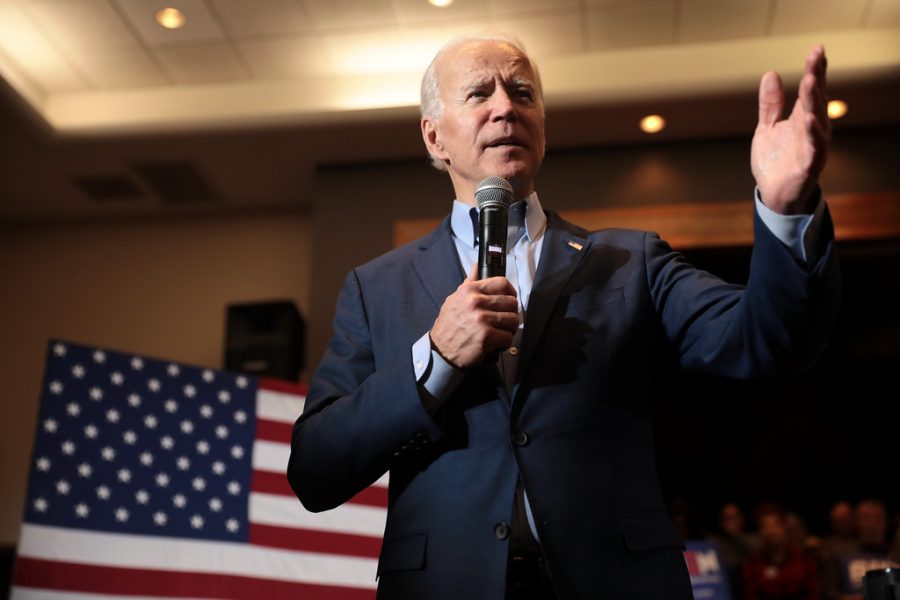Will President Biden be the climate change hero we need?
Gage Skidmore on Creative Commons
How should President Biden handle the second half of his term?
It has been a little over a month since the keys of the White House were handed over from Donald Trump to President Biden and his administration has already done a lot of work to reverse nearly all of Trump’s policies and actions.
Aside from the COVID-19 pandemic, one of Biden’s most serious challenges is combating the climate crisis that has received more and more attention in recent years. Some of the most significant initiatives and proposals that have been put out in recent years include the Paris Climate Agreement and the Green New Deal, sponsored by Rep. Alexandria Ocasio-Cortez and Massachusetts Senator Ed Markey. Even in his inaugural address, President Biden used the word “crisis” when referring to the state of the world’s climate. Since taking the oath of office, Biden has signed a number of executive orders and pushed for more focus on fighting climate change.
While the Green New Deal has garnered a lot of support, it has also received a fair amount of criticism for its highly ambitious and costly demands. While Biden has both rejected and supported aspects of the Green New Deal, the president has come up with his own plan for combating climate change. This “Biden Plan,” as stated on his campaign site, seeks to bring the nation to a 100% clean energy economy and to run on net-zero emissions by 2050.
On his first day in office, Biden immediately rejoined the Paris Climate Agreement, the worldwide pact to keep the global temperature below 1.5 degrees celsius, which his predecessor heavily criticized and withdrew from on the basis that the U.S. disproportionately took the most responsibility for reducing carbon emissions.
In addition, the Biden administration halted the operation of the Keystone XL pipeline, an oil transportation system from Canada to the U.S. Critics of this decision argue the pipeline provides thousands of jobs and is a cleaner alternative to other oil transportation methods. Furthermore, in regards to carbon emissions, the Keystone pipeline only accounts for a small fraction of the total emissions the United States produces, meaning that halting operations would not cause much change. The initiative may ultimately have a positive impact and make a statement against fossil fuel use but without a cleaner alternative, oil transportation will continue and only transfer to platforms that produce more harmful emissions.
On top of these major decisions, Biden has also established various committees and task forces focused on combating climate change and promoting green energy jobs. A new position, the Special Presidential Envoy for Climate, was created for the National Security Council with climate change also being promoted as a primary focus for foreign policy. The position is currently held by former Secretary of State John Kerry.
The plethora of initiatives, plans and actions put forth by the Biden administration are some of the most climate-focused of any previous president and are long overdue. While the administration still has a long way to go in combating the climate crisis, the issue is being pushed to the forefront of the nation’s policies and decisions. More action will hopefully be discussed in the upcoming U.S. Climate Summit on April 22.

Sam Elwell is the Managing Editor for The Hawks' Herald who has also served as the Opinions Editor (2021-2022) as well as a staff writer (2020...






